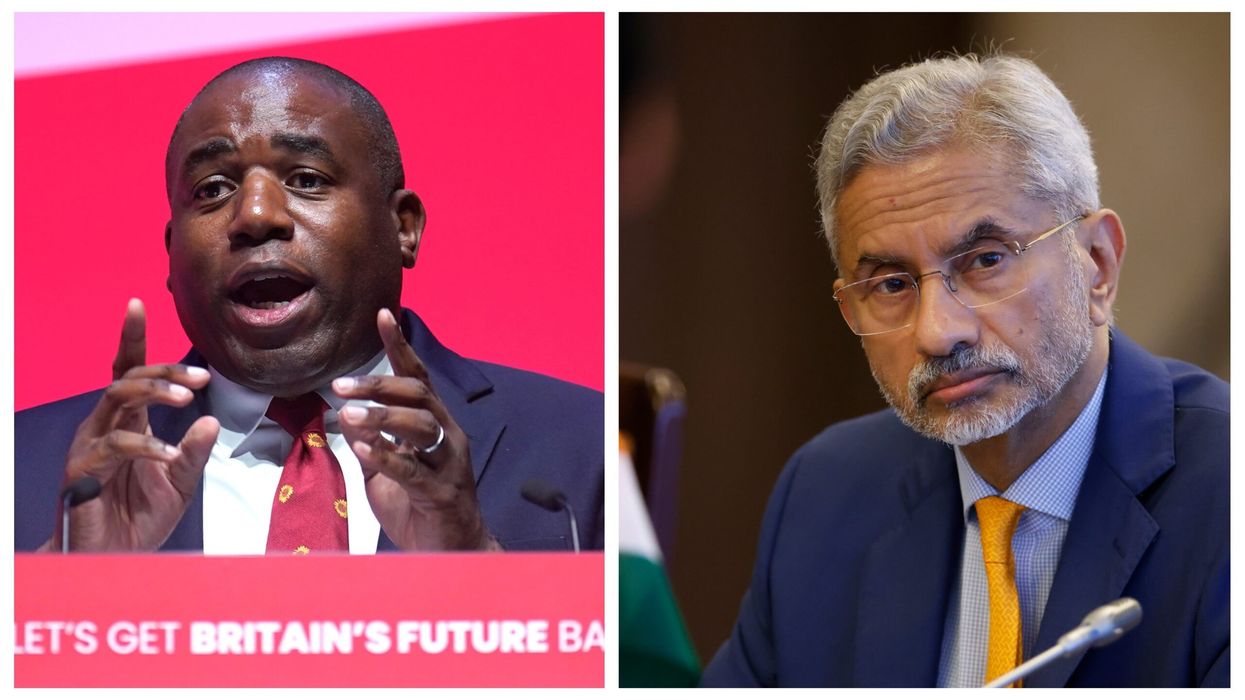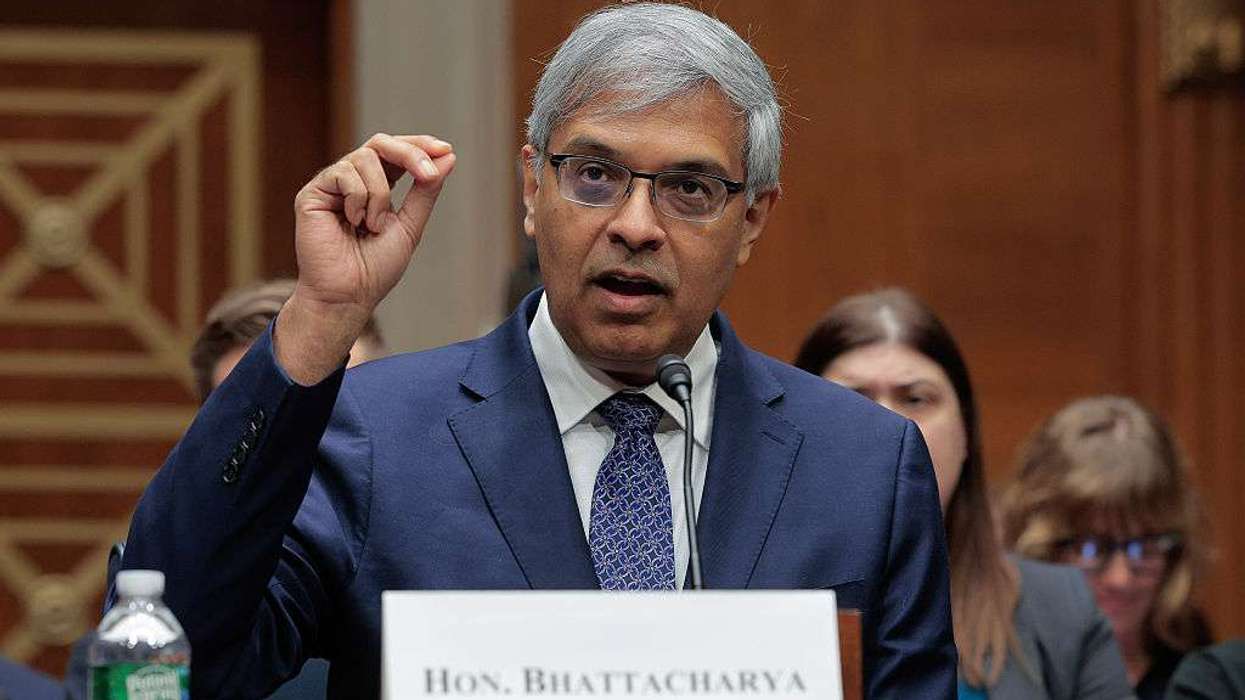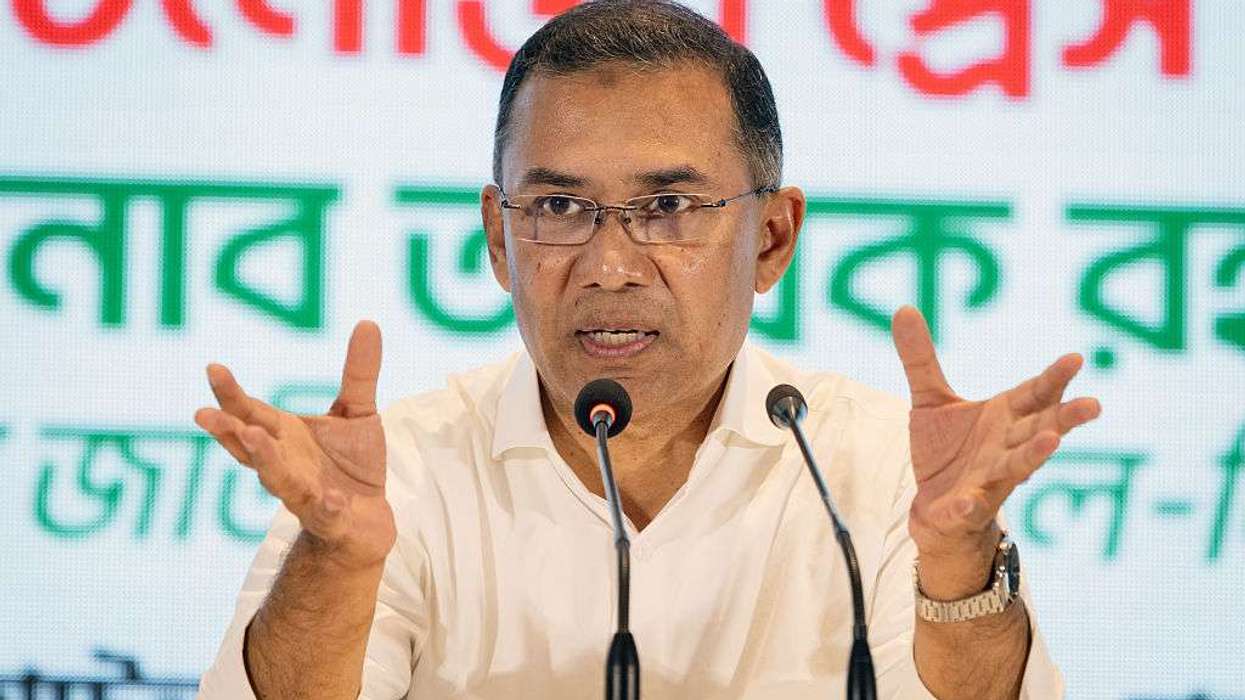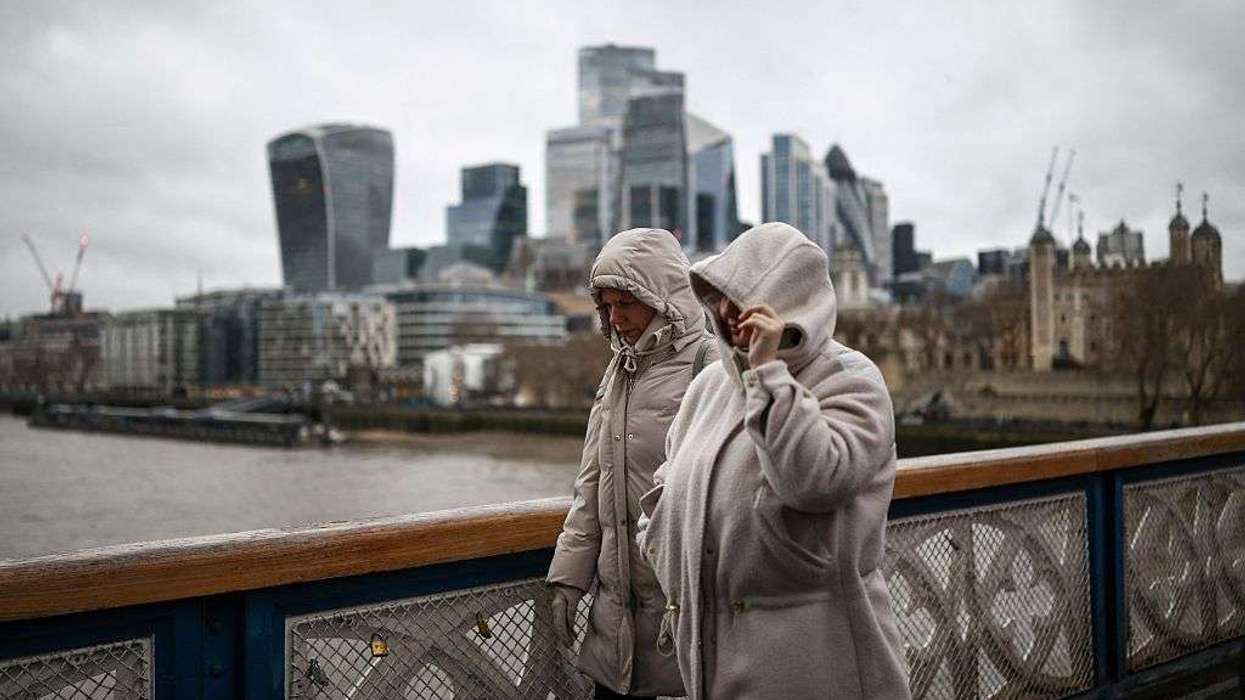FOREIGN SECRETARY David Lammy spoke to Indian external affairs minister S Jaishankar and Pakistan deputy prime minister Ishaq Dar as tensions rose between India and Pakistan after last week's deadly attack in Kashmir that killed 26 civilians.
In his conversation with Jaishankar, Lammy was briefed about India’s "zero tolerance" policy for terrorism and the "cross-border" links to the Pahalgam terror attack.
"Spoke to Foreign Secretary @DavidLammy of the UK today. Discussed the cross-border terrorist attack at Pahalgam. Underlined the importance of zero tolerance for terrorism," Jaishankar said in a social media post.
The Pakistan Foreign Office said Dar, who is also the foreign minister, told Lammy that Pakistan was committed to promoting peace and stability while defending its national interests.
ALSO READ: Five key developments after the deadly Kashmir attack
Dar also raised concerns over India's "unilateral" actions, including the suspension of the Indus Waters Treaty, which Pakistan called a "clear violation" of international obligations.
The British foreign secretary emphasised the need for de-escalation and a peaceful resolution of issues, the Pakistan Foreign Office said.
Following the attack, India announced punitive measures against Pakistan, including suspending the Indus Waters Treaty, closing the only operational land border crossing at Attari, and downgrading diplomatic ties.
Pakistan responded by shutting its airspace to Indian airlines, suspending all trade with India including through third countries, and rejecting India's suspension of the Indus Waters Treaty, warning that any move to block water flow would be seen as an "act of war".
The attack on 22 April killed 26 civilians. India has identified two of the three suspected terrorists as Pakistani nationals. Islamabad has denied any involvement and called for a neutral probe.
Security officials and survivors said the terrorists segregated the men at the site, a meadow in the Pahalgam area, asked their names, and targeted Hindus before shooting them at close range.
The attack triggered outrage and grief in India and led to calls for strong action against Pakistan, which New Delhi accuses of supporting terrorism in Kashmir.
The Jaishankar-Lammy conversation came after Keir Starmer called prime minister Narendra Modi to condemn the attack. Several world leaders have since spoken to Modi, including US president Donald Trump, French president Emmanuel Macron, Israeli prime minister Benjamin Netanyahu, Egyptian president Abdel Fattah El-Sisi, Jordan's King Abdullah II, Italian prime minister Giorgia Meloni, Japanese prime minister Shigeru Ishiba, UAE president Mohamed Bin Zayed Al Nahyan, Iranian president Masoud Pezeshkian, Sri Lankan president Anura Kumara Dissanayake, Dutch prime minister Dick Schoof, US vice president JD Vance, Australian prime minister Anthony Albanese, and Nepalese prime minister KP Sharma Oli.
On Sunday, Modi said that the "perpetrators and conspirators" of the Pahalgam attack would be "served with the harshest response".
"The whole world stands with 140 crore Indians in our fight against terrorism. I once again assure the affected families that they will get justice, and justice will be done," Modi said in his 'Mann ki Baat' address.
"The perpetrators and conspirators of this attack will be served with the harshest response," he added.
Meanwhile, China said on Monday it hoped India and Pakistan would exercise restraint and welcomed all measures that could help ease tensions.
The Indian Army said it had responded to "unprovoked" small arms fire from multiple Pakistan Army posts around midnight on Sunday along the 740-km de facto border separating the Indian and Pakistani areas of Kashmir. It reported no casualties.
The Pakistani military did not respond to a request for comment.
Separately, the Pakistan army said it had killed 54 Islamist militants who were trying to enter Pakistan from the Afghanistan border over the past two days.
Following the Pahalgam attack, India's defence forces have conducted several military exercises across the country. Some of these are routine preparedness drills, a defence official said.
Security forces have detained around 500 people for questioning after searching nearly 1,000 houses and forests in Indian Kashmir, a local police official told Reuters. At least nine houses have been demolished so far, the official added.
Political leaders in the state have called for caution to ensure that innocent people are not harmed during government actions against terrorism.
"This is the first time in 26 years that I have seen people coming out in this way... to say we are not with this attack," Jammu and Kashmir chief minister Omar Abdullah told the legislature.
"It (militancy) will finish when people are with us, and today it seems like people are getting there," he said.
Kashmir Resistance, also known as The Resistance Front, said in a post on X that it "unequivocally" denied involvement in the attack after an earlier message that claimed responsibility. The group, considered an offshoot of the Pakistan-based Lashkar-e-Taiba by a Delhi-based think tank, said a "cyber intrusion" led to the earlier social media post claiming responsibility.
(With inputs from Reuters and PTI)





